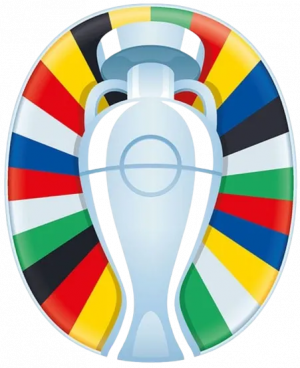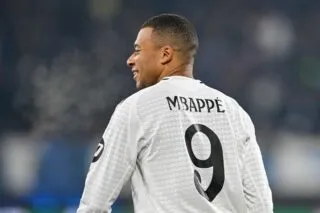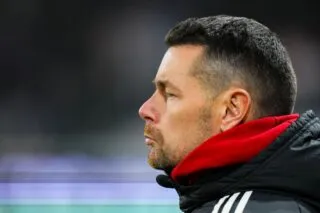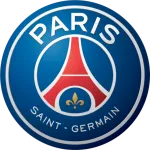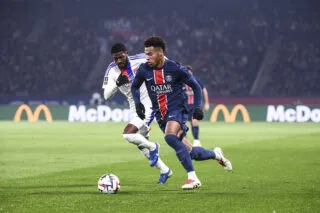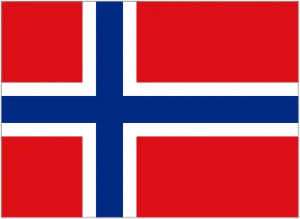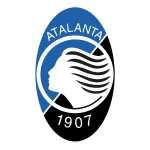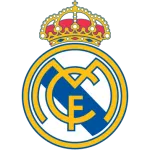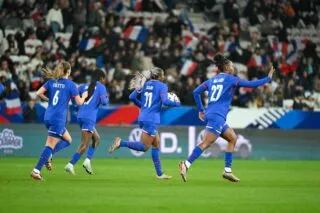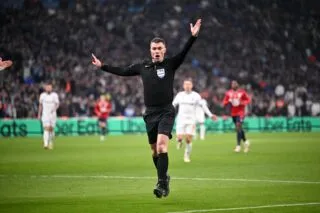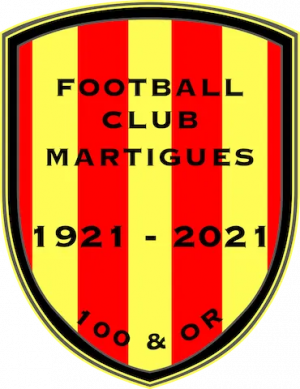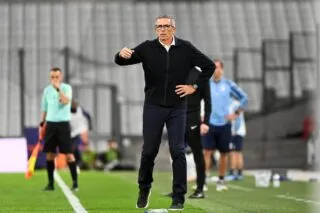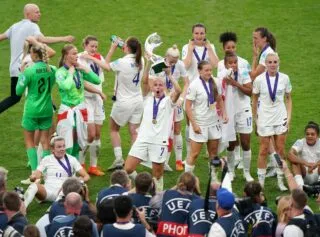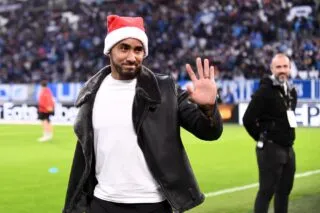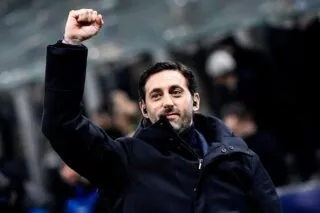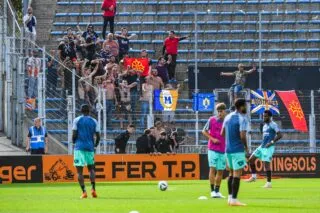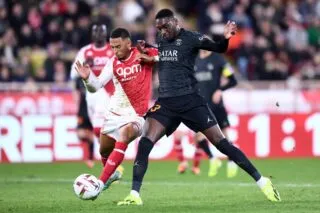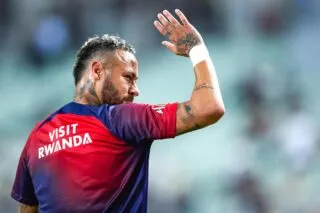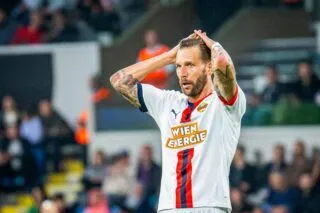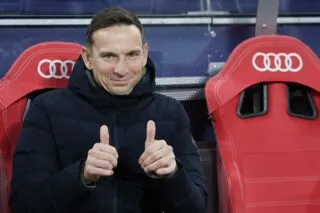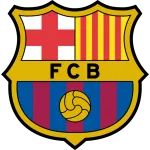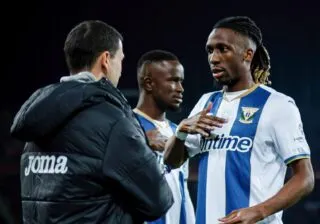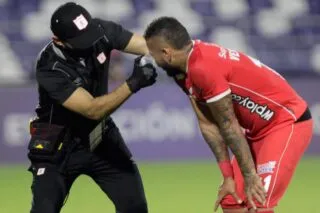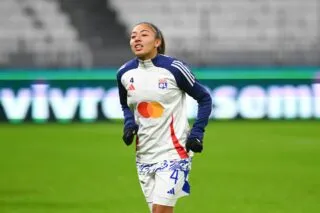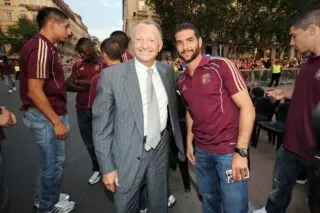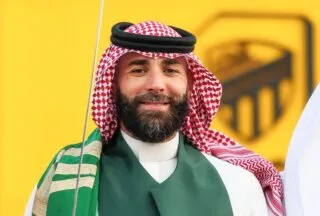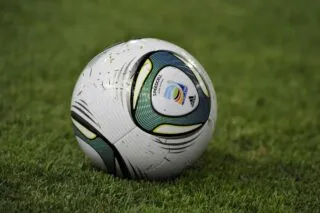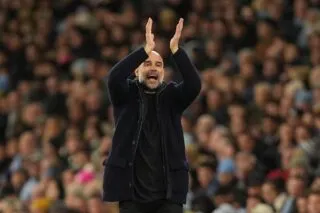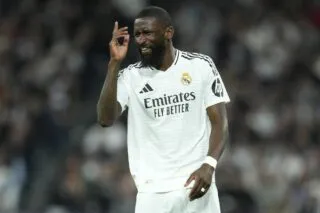- Premier League
- Liverpool
Jürgen Klopp : « Who doesn’t like a bit of Iron Maiden? »
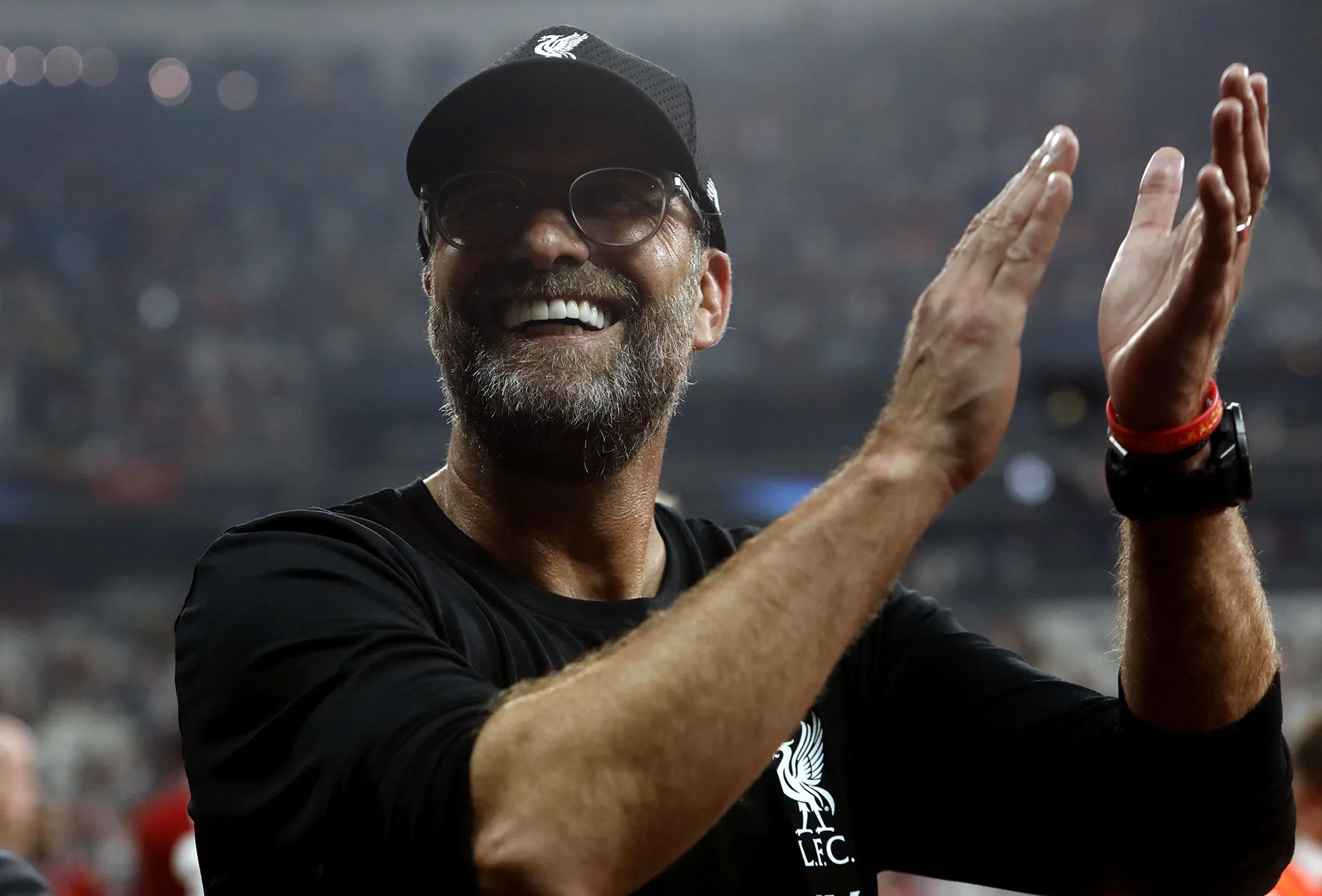
Not too long ago, the world of football was divided in two categories. Pep Guardiola’s worshipers on one side, and José Mourinho’s on the other. Then, Jurgen Klopp introduced the notions of Gegenpressing, heavy metal football or « high-intensity sprints » to the everyday language of football pundits, as he became the only manager on the planet capable of truly rivaling with the Manchester City coach. Loved by his players, adored by his supporters but also by his successive board members (he has only managed three clubs in 18 years, and has never been sacked), the New Balance ambassador has finally shared the secrets of his methods. The management methods which have enabled Liverpool to reclaim their place as one of Europe’s very best clubs.
You didn’t win the Premier League last season despite racking up 97 points, but you did win the Champions League. Are you excited by the idea that there is still something else to win or, to the contrary, are you worried about the players losing some of their appetite based on that huge European success? I don’t think we’re in a situation where we can allow ourselves to choose. This season, we’re going to try to win what we can. I don’t need to constantly check that my players are fully focused. We make swift judgements on a daily basis, which isn’t good. It’s a possibility that they will need a small reminder at a certain point of the season and I’ll do what’s necessary if that’s the case. That doesn’t say anything about the players’ character or desire. We are human beings and we all have weaknesses. When life is too easy, you sit back.  Life isn’t easy for my players. During their holidays, everyone went up to them to congratulate them, then the league was quickly back underway. We played Norwich in our opening game and you forget everything that’s been said to you because although not the most glamorous side in the world, we were up against a very strong outfit. Even though we won 4-1, it was still a wake-up call. It was a reminder of the demands and a case of back to reality straight away in the first match, so I don’t need to judge how motivated my players are after winning the Champions League. The environment dictates their duties, starting with the match against Norwich in August.
Life isn’t easy for my players. During their holidays, everyone went up to them to congratulate them, then the league was quickly back underway. We played Norwich in our opening game and you forget everything that’s been said to you because although not the most glamorous side in the world, we were up against a very strong outfit. Even though we won 4-1, it was still a wake-up call. It was a reminder of the demands and a case of back to reality straight away in the first match, so I don’t need to judge how motivated my players are after winning the Champions League. The environment dictates their duties, starting with the match against Norwich in August.
Because you chose them? Yes, but mainly because I know them. I didn’t choose all of them. When I looked at the start of the league campaign, I just said to myself that it would be incredibly intense once again. I watched Aston Villa at the start of the season. The intensity was incredible and there was a battle to gain each meter on the pitch. Tottenham v Newcastle was the same. And yet, when I watch other teams play, I’m relaxed on my sofa. I don’t have the adrenaline pumping through me like when I’m on the touchline.
How can you explain the famous intensity of the Premier League? There are several reasons. The first is the stakes. You have five or six teams battling to qualify for the Champions League, a few others for the Europa League and all the rest to stay in the top flight, so there’s always a lot to win or to lose. Add to that the quality of the players and the coaches… It’s also specific to the culture in this country and league. It’s win or lose, with hardly any space in between, although a draw can be deemed acceptable from time to time. That’s what makes this competition so intense. No other words come to mind to describe it. ‘Intense’ is the best term that I’ve found. It’s like that all season long from start to finish and it’s truly unique. That’s why it’s a franchise and a product that everyone watches all over the world. I can’t remember a boring match since I’ve been here. I can’t deny that it might not always be at the highest level tactically, however, particularly if a goal is scored early on.
Teams like City are capable of banging in five or six goals, which means tactics go completely out the window. Most of the time, it’s very tight and it’s a constant battle to gain territory. I say that with the eyes of an observer. I watched two games last Sunday and I can say that the competition has well and truly kicked off.
At [FSV] Mainz [05], you spent a lot of time talking to players that you wanted to sign. Do you still do that? Yes, the quality of the players that I manage has increased, but I still do the same thing. At Mainz, I asked the player what his project was: « What do you want to do? » yet deep down, I’d already made my decision based on the type of footballer that he was. Then there’s the rest of the criteria. The person on the pitch doesn’t say everything about his character. Before signing a player, I always combine my impressions from what I see on the pitch with the things that I hear. When you speak, it makes sense. It’s like an actor and his characters. It’s rare for the actor’s personality to correspond with the roles that he plays. It does happen, but it’s rare. I really like to understand the men behind the players that I want to work with because if you do, you really get them and you can manage them with kindness.

Is your job essentially about adapting to different personalities? Not just with the players. I have to do so with the 80 people that I work with here who don’t all play football.
Interpersonal relations are an essential part of life, so I adapt to them and vice versa, they also have to adapt to me. It’s a path towards a mutual understanding. I’m not a particularly dogmatic person. I’m not going to say to them, « This is what I’m like, take it or leave it. » We have an expression in German to render this, which translates as « Eat or starve to death, » but I don’t think like that. It’s important for me to adapt to others because I also benefit considerably from doing so. In any case, they can be whatever person that they want as long as it’s a win-win situation for all involved.
Could you work with a top player who isn’t respectable in human terms? I could. Would I want to? I’m not so sure. Nobody is so important within a collective or social group to the point that you can overlook their attitude or the way they conduct themselves with others. I think that everyone on earth hopes for the same thing: to be supported in what they do and have people on their side. When a player is disappointed or becomes withdrawn, it’s often because he’s stopped receiving external support. Most of the time, you’re able to pinpoint what their problem is, but sometimes you can’t. I’ve very rarely seen a player who didn’t try to adopt the right attitude as a minimum. I think external factors can be the most important ones, namely the environment and the circumstances. If that side of things isn’t working for a player, you have to make changes in those areas, rather than focus on the person itself. You have to create an environment which everyone can benefit from. It’s a constant process and each party must find their niche. Personally, I don’t dictate anything. I don’t say, « That’s how it is, deal with it. » All of us together create the environment.
Why do you do this job? I don’t know how to do anything else, even though I tried my hand at two or three other things when I was young. Above all, it’s the job that I’ve always wanted to do. It was in me from a young age. At 25 or 26, I had a dream that actually should’ve been a nightmare, which involved someone coming up to me and saying, « Listen, we’ve realised you can’t play football, but, on the other hand, you can coach a team. » It was almost like that in real life; it wasn’t far off. Nobody ever told me that I was an inept footballer and I had to wait until the age of 33 before taking charge of my first team, Mainz, but it did happen. I could’ve done it earlier because I loved the game, but I didn’t love the player that I was. I hated my technique and lack of ability. My brain understood and sent information across, but my body didn’t follow the instructions to do what I wanted. I was often disappointed by my ability, but I kept playing the game because I loved it. It was very frustrating. « Why can’t I manage to do that? Ufff. » I’ve never really regretted no longer being able to play football and I haven’t had time to have regrets anyway. My playing career ended on a Sunday and by the Monday, I was a coach (Editor’s note: on 25 February 2001, Mainz lost 3-1 away to SpVgg Greuther Fürth with Klopp on the pitch. Coach Eckhard Krautzun was sacked and Klopp replaced him). In the space of 24 hours, I had to switch to a more reflective approach, because I had to think about, organise and plan training sessions. I was lucky in the sense that it wasn’t a struggle to cross out the player that I had been because I didn’t really like myself as a footballer. I had to switch to a more reflective approach. I was lucky in the sense that it wasn’t a struggle to cross out the player that I had been because I didn’t really like myself as a footballer.

At the start of your managerial career in Germany, I understand that you would watch your training sessions at 1. FSV Mainz 05 from the top of a hill because when you were on the touchline, you couldn’t really analyse the space between players and their movements… Yes, that’s right. I went up the hill and watched the sessions from there. My instructions to the players were: « When I blow the whistle, you stop immediately. » So I blew my whistle, ran the 100m down to the pitch, they stopped and waited for me and I would say to them: « You’re too far away from each other here and too close there. » We had a good laugh about it because we were all mates. Those were great times.
So it took you some time before you were able to analyse a game from the dugout? I really had to learn very quickly. I remember my first match as a manager, against [MSV] Duisburg (Editor’s note: on 28 February 2001, two days after his appointment). It was a crucial game and one that we simply had to win, it didn’t matter how, nobody cared about how we got the win. At that stage, the only thing that mattered was that we won the game to avoid relegation. We ended up winning 1-0. It was a massive relief. Immediately afterwards, I had to do the usual interviews where you’re asked to analyse the match. I can’t remember what I said, but had I been honest, I would have said: « Give me a couple of hours and I’ll come back and give you my thoughts then, because what I’ve just seen out there was the players running around all over the place. » After that, I learned how to watch games. I shut myself away in my office and watched loads of DVDs. I didn’t want to find myself in a situation where I didn’t understand anything after a game again.
To go back to the story of the hill, are you obsessed with the distance between players?Yes, a bit. I don’t know whether it’s an obsession, that’s perhaps taking it a bit too far, but it’s the key to the game. When your team masters the distances on the pitch, you’re the ones that determine the size of the pitch and its dimensions. You and nobody else. The size of the pitch is the same for both teams, but if you determine the space the opposition has, you’re the ones who, in a way, determine the space they’ve got to play in, although some teams still end up giving you the runaround in that space. The team that comes to mind here is Wolves [Wolverhampton Wanderers FC], they’re a really tough opposition at the moment because of their timing and passing. Manchester City obviously represent a challenge… their quality, movement and passing routes are impressive, but Wolves are really something special.  The job that their defensive midfielders do, their ability to launch counter-attacks and switch from the defensive to the attacking phase is impressive. You try to regain possession but they manage to overcome your pressing by alternating between playing it short and long. They don’t just launch it forward willy-nilly, they always think about what they’re doing. After playing them, I said to myself: « Wow, what a team! (Editor’ note: the Reds came out on top in both of the sides’ league meetings last term but lost in the FA Cup tie at Molineux). They cause you problems and force you to think about and tweak things, it makes it exciting. When others have new ideas, it makes you question your own. I’m not saying that their ideas are smarter, actually I don’t like to compare how teams play, but they’ve got some special ideas. Finding solutions to problems in football is a challenge. I don’t have much in terms of content and observations to share with my players, particularly at the start of the season. You can only base your judgement on the pre-season games, which don’t tell you that much and that information soon becomes outdated. Our opponents also generally set up differently against us compared to how they do in most of their games. So you have to create an environment that allows the players to adapt to an unknown situation during the course of a game. I’m sure that there are plenty of managers who are more intelligent than me, but thank goodness that’s not the most important thing. What I try and do is create an environment that enables the team to adapt.
The job that their defensive midfielders do, their ability to launch counter-attacks and switch from the defensive to the attacking phase is impressive. You try to regain possession but they manage to overcome your pressing by alternating between playing it short and long. They don’t just launch it forward willy-nilly, they always think about what they’re doing. After playing them, I said to myself: « Wow, what a team! (Editor’ note: the Reds came out on top in both of the sides’ league meetings last term but lost in the FA Cup tie at Molineux). They cause you problems and force you to think about and tweak things, it makes it exciting. When others have new ideas, it makes you question your own. I’m not saying that their ideas are smarter, actually I don’t like to compare how teams play, but they’ve got some special ideas. Finding solutions to problems in football is a challenge. I don’t have much in terms of content and observations to share with my players, particularly at the start of the season. You can only base your judgement on the pre-season games, which don’t tell you that much and that information soon becomes outdated. Our opponents also generally set up differently against us compared to how they do in most of their games. So you have to create an environment that allows the players to adapt to an unknown situation during the course of a game. I’m sure that there are plenty of managers who are more intelligent than me, but thank goodness that’s not the most important thing. What I try and do is create an environment that enables the team to adapt.
Is there a kind of social contract between the players? That’s exactly it.

Your teams really do run an awful lot, there’s almost a sacrificial element to it…s I’ve said before, our identity is all about our intensity. It’s all in pursuit of one objective: to ensure we win more football matches and trophies than we have in the past. I could theorise and say that we play football in the same way as we play chess. We’ll make this move, move forward here and, ultimately, in an almost mathematical way, the move ends with an unmarked player in the box scoring a goal. The thing is that I’m not intelligent enough to be that manager who’s capable of thinking about football in such a definitive way. For example, when we played Arsenal [FC] last season we were – I don’t remember exactly – perhaps 25 points better off than them, but we weren’t 25 times better than them, my players weren’t 25 times better than theirs in every position on the pitch. We were capable of causing them problems, but so were they. We have to find a way to dominate games, to, in a way, be more lively and brighter than the opposition. The intensity we try to impose is our way of ensuring that we’re collectively stronger when up against teams who are close to matching us for quality. We don’t run just to prove that we can run further or are better at it than our opponents, we run a lot to win the ball back when we’ve lost it and run a lot when in possession to give the player on the ball options. However, there are also calmer periods, when the intensity is low. The goals we scored last season didn’t all come as a result of our high-intensity game. Had that been the case, we wouldn’t have picked up 97 points and wouldn’t have lasted the pace. There are times when we manage games. Nevertheless, the main thing in terms of what we have to do is that we have to leave everything on the pitch. To do that, you’ve got to have a sense of the here and now because ultimately this match is the only one that you’re going to play in the next three days. I say to my players: « There’s no observation stage, no standing off, don’t waste time. It’s now or never. Now’s the time ». This approach to the game isn’t just down to me and my personality, it’s also shared by the team and its collective personality. When my players make progress, I gain a better understanding of the game. They offer me the chance to learn. When I watch a match nowadays, I understand what’s going on (laughs).
But how exactly do you up a team’s intensity levels? Is it simply a case of doing fitness drills over and over again? There’s a mental and physical aspect to it, both of which are important. For example, there are some things that you can only work on as a team. Remaining strong and trusting in what you do when things take a turn for the worse is all part of the journey. In terms of training sessions, you set up a drill, then do it again but reduce the space you do it in – to develop technique and decision-making skills – and then you do it again but for longer, and again but with greater demands on the speed at which it’s done, etc. That’s the fundamental idea of the game, it’s not rocket science, but when it all comes together, it’s fantastic to watch. I’m not convinced that I’m improving as quickly as the players, but it’s really cool.

You’ve previously compared your playing style, Gegenpressing, to heavy metal football…
(Sighs) Yes, I did say that… It was really just an anecdotal conversation at the end of a press conference. I was asked to compare myself to Arsène Wenger and, at that stage, I didn’t think it was possible for us to be compared and that I was even close to his standard. I felt as if I was miles behind him. I then tried to describe and explain the different philosophies that we followed, using musical metaphors and that was when I talked about Arsenal’s silent symphony and heavy metal football. Since then, that comment has stuck with me.
Does that mean to say you don’t listen to Metallica or Iron Maiden every morning then? Who doesn’t like a bit of Iron Maiden?! (laughs) Although that doesn’t mean that I’m going to use them to describe my footballing philosophy. I like cheesecake but my teams don’t play cheesecake football. To get back to your question, I must have two Kiss records at home from when I was very young. I went through a phase but that’s all in the past now. As for the definition of Gegenpressing, what’s it all about? It’s the football you play for the few seconds after you lose possession. That’s all there is to it. If you want to win the ball back as quickly as possible, you have to counter-press. That’s what I enjoy. In my view, it’s a way of playing the game that allows you to conserve your energy. It’s a philosophy and, at the same time, an outlook. It’s a plan, a voice, a belief. We try to play in an organised way, with a style where the players make sound decisions and are able to take the initiative with a certain element of freedom because they feel confident in everything they do, whilst being aware that the stronger the opposition, the more difficult things are.

You’re a very animated figure on the touchline, are you in football for the strong emotions that the game offers? I’ve liked football since I’ve had the use of reason. I’m not simply seeking emotions, but let’s say that they’re part of the game. When I was a child, football was the only thing that brought me closer to those feelings. I played tennis and skied, but football was the only thing that could give me the collective joy and satisfaction of winning after doing something together. The emotions you feel – that mix of relief and joy – when you’ve just won a game isn’t something that you can buy, it’s a unique feeling and one I love. And to give it the full significance it deserves, you also need to lose games from time to time. I don’t like that particular life lesson but it’s one you need in order to appreciate the value of success. A defeat hurts, but it’s not something that’s going to kill you.
Are you someone who’s able to move on quickly following defeat? Unfortunately, football is constantly on my mind and it’s the only thing that I talk about in the evenings. It’s a bit embarrassing, but hey… I don’t sleep any differently according to whether we’ve lost or won. Where the difference can be seen is in my smile. But the result of a game isn’t the be-all and end-all. It’s only a piece of information that you gather after the 90 minutes. The result is very important but I’m more interested in the other information and the manner of the victory or the defeat. You can end up winning after producing your worst-ever performance and have had plenty of the play in a game that you ultimately lose. There are lots of lessons to be learned following a defeat. You can only allow yourself to be disappointed if you haven’t shown the right attitude, because losing is part of the game. The other day, I watched the Tottenham [Hotspur FC] v Newcastle [United FC] game (a 1-0 win for the visitors). Spurs created more chances but when the opposition defend well, what can you do about it? Nothing. You’ve got to accept defeat and learn from it. That’s the way things go in football. I can be either disappointed or pleased with the result of a game, but when I get up the following day, I’m pretty much the same person as I was the previous day. I get up and am focused on working and improving.
Where does that resilience come from? I’ve been in football for such a long time…I was used to losing, particularly at the beginning of my career. As the years pass, that’s always a feeling you struggle with but it’s one you learn to live with. You know exactly what I’m talking about.

In 2015, you left [Borussia] Dortmund before being appointed the Liverpool [FC] manager a few months down the line. They’re two clubs with strong working-class legacies: the miners in Germany and the dockers in England. Is that just a coincidence? I knew about Liverpool’s heritage before coming here and it’s obviously an aspect that I like, but I can’t answer your question. I have no idea. Before Dortmund, I was at Mainz and we were relegated to the second tier and the club’s management and I made the decision that we would go our separate ways if we didn’t get back up (Mainz ultimately finished fourth in the Bundesliga in 2007/08). I watched top-flight games because I knew that there was interest from clubs at that higher level and the team I wanted to manage was BVB. I looked at the league table and they were lying in 13th. The fact that they were in such a lowly position scared me a bit. As was the case when I was appointed by Liverpool, it all went through during my holidays.
Liverpool are also one of the few teams where the main iconic figure from the club’s past is a manager, Bill Shankly in this case… I knew about it but didn’t give it a second’s thought. Until you work for this club, you’d struggle to be aware of that fact. When over in Germany, you don’t say to yourself: « Oh, at Liverpool, they put their managers on a pedestal, I’m going to go and work there ». I didn’t think about my role, my status or my impact here before taking over. I didn’t have a clue what it was like to be the manager of an English team. When I received the offer, I did what any fan would do and took a look at Kicker (the equivalent of France Football in Germany), looked at the squad and said to myself: « It has the makings of a good team ».
When you represent Liverpool, do you feel as if you belong to a community? Yes and that takes me back to my childhood. When you’re a kid, you play for and support your club. My dad, uncle and I would drive the 80km to Stuttgart to go and watch VfB (Stuttgart). If I rack my memory, I think that I can remember all of the times we went to see them play. I also recall the day when I wanted to get an autograph from my hero at the time, Karlheinz Förster. I was very shy and told my dad to go and ask for an autograph. He said: « You go yourself. » I’ve still got that autograph on my wall at home. I can understand the people here because I was just the same. The only thing is that we aren’t as passionate as the people are in Liverpool, because where I come from we don’t express our feelings quite as openly. In the Black Forest, we’re busy, we’ve got things to do, serious stuff to be doing (laughs).
Incidentally, had you not grown up in Glatten, a small town in the Black Forest where sport was the only thing to do, could you have ended up falling in love with something else? It’s not even a small town, it’s a village. Imagine what life was like in Germany back in the ’70s. There were only three television channels. Once you got home from school, you’d spend six or seven hours outside, nobody was frightened of anything, nobody could call you on your mobile to tell you to come home. There was a sort of deal: once you’d done your homework, that was it, you were entitled to go off and disappear. I was independent and that has had a massive influence on me throughout my whole life. Freedom has always been something that has been part of my way of thinking. I think that the first time I went to a big city was when I was in Frankfurt at the age of 19. The Black Forest is where my roots lie and I take that very seriously. My dad wasn’t from the region. He wasn’t a Swabian but when I go back, I speak to people in Swabian German. My mum and sister still live there, although, for me, Mainz is really ‘home’, because that’s where I wanted to live, but I don’t reject anything that has to do with my roots. I had a wonderful childhood.

By Joachim Barbier, Photos : Louis Canadas and ICONSPORT
